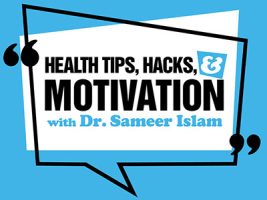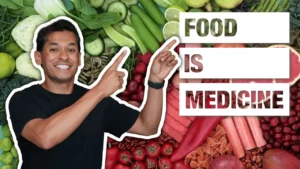This video focuses on key takeaways regarding the prevention and symptoms of colon cancer. It mentions that colon cancer typically presents no symptoms until it is too late, and provides guidelines on what to look out for – such as rectal bleeding, abdominal pain, weight loss, and changes in bowel habits. To reduce the risk, diet adjustments, quitting smoking and drinking, increasing exercise, and keeping a healthy weight are all recommended. Finally, a colonoscopy is essential in detecting polyps before they become cancerous.
VIDEO HIGHLIGHTS
- Colon cancer is a cancer of the colon or large intestine and can develop from precancerous polyps.
- Risk factors include family history, certain diets, sedentary lifestyle, diabetes, obesity, smoking and drinking.
- Symptoms of colon cancer include rectal bleeding, unexplained weight loss, persistent abdominal pain, weakness/fatigue/anemia and a change in bowel habits.
- Tips for prevention include changing diet with more fiber and plants; avoiding alcohol; not smoking; getting exercise; maintaining a healthy weight; and getting a colonoscopy at age 45 or sooner if high risk or experiencing symptoms.
FULL TRANSCRIPT
The big sea. Everyone knows, and unfortunately what this means, cancer, one of those things you never want to hear about yourself or a loved one. Rarely, if ever, does cancer show you symptoms ahead of time. In fact, by the time most people have cancer, they don’t realize they have any issues until it’s too late. When this video tell, I wanna explain exactly one of the more important cancers that I deal with all the time, colon cancer. We’ll discuss what it is, what symptoms it causes, what you can do to prevent this. And at the very end of the video, I wanna give you my number one tip of what you can do today to make sure you don’t develop colon cancer.
Don’t be statistic. You’ll find out in this video what you can do to prevent this. Guys, let’s talk about poop Audi, Dr. Islam here, AKA your poof girl, trying to give you the best tips and tricks so you can live your best life from the top all the way down to the bottom. If you haven’t already, don’t forget to smash down mic button live.
Shannon, subscribe if you haven’t already, don’t forget to subscribe to my channel and newsletter. We can get great tips and tricks like you’re learning in today’s video. So before we begin, lemme talk to you about a patient of mine named Brian. Now, for a while, Brian was having a lot of different vague abdominal symptoms, abdominal pain, weight loss, intermittent rectal bleeding, some change in his bowel habits. Now he didn’t really make anything of it, it wasn’t all the time, and he attribute his rectal bleeding gist as hemorrhoids. Not a big deal. He kind of blew it off. But as symptoms got worse and worse and worse, he came to see me and we talked about his symptoms and we decided to go ahead and undergo what’s called a colonoscopy.
And when we did that, unfortunately what we found was colon cancer. Brian’s only in his thirties, he actually ended up having an aggressive form of colon cancer. Now he’s currently going through chemotherapy and radiation therapy, but because we found his colon cancer, we actually have a better prognosis for him than if we were waiting longer or we had a more advanced disease.
So what exactly is colon cancer? Colon cancer is a cancer and what’s called the colon or the large intestine. The large intestine mainly is an organ to help move things through from your small intestine to the rectum. It acts as a superhighway to push that stool to get it going and moving through there. But at times there could be a DNA alteration can lead to progression on what’s called a polyp, which is a precancerous growth that over time can lead to colon cancer. Unfortunately, we are seeing colon cancer in younger and younger individuals and we don’t quite know why. And typically this cancer develops a what are called pre-cancerous polyps. Here’s the scary thing about polyps is that they don’t cause symptoms until it’s too late. So you don’t even know that you have polyps, you don’t feel a polyp. You can’t tell that you have a polyp, and in most cases, these polyps grow continuously inside your colon unless we actually take a look with the colonoscopy to find that polyp and remove the polyp at that same time. This is why procedures like a colonoscopy are invaluable, Critical and lifesaving to find these polyps before they become cancer.
We can get rid of those polyps and minimize or even eliminate your risk for developing colon cancer. And this is also why we do the colonoscopy when you’re feeling good, when you’re not having symptoms, when it’s due because of your age. Cuz our goal is to find the issue before becomes a problem, before you have symptoms and before it’s too late. So who exactly is at higher risk of developing colon cancer?
Here’s what you need to know. Number one, if you have a family history, especially if it’s a first degree relative, mom, dad, brother, or sister, this automatically increases your risk for developing colon cancer. Number two, certain diets can make it more likely for you to have colon polyps and colon cancer. Whether it’s a diet that’s low in fiber, high in red meat, this is a bad combination to make it more likely for you to develop colon cancer. Number three, having a sedentary lifestyle. We’re just chilling, not doing anything, not exercising. Not only is that bad for your overall health, it is bad for your colon and increases your risk for developing colon polyps and colon cancer for diabetes, insulin resistance is there a risk factor for a lot of different problems, whether it’s heart disease, whether it’s problems in your pancreas, but also increases your risk for developing colon cancer. Obesity, the bigger you are, the more likely you’re gonna have colon polyps and the more likely you’re gonna have colon cancer, including aggressive colon cancer. Then lastly, smoking and alcohol.
That combination makes things substantially worse. If you’re smoking and you’re drinking, don’t do it. Don’t do either one, they’re both bad for you, but that can increase your risk tremendously for developing colon cancer. So what exactly are signs and symptoms of colon cancer? Like I mentioned before, colon polys, which are the pre-cancerous growth before it goes into cancer, typically doesn’t cause any symptoms. It’s not a big deal, but sometimes there can be subtle signs that’ll be going on inside your body. That makes me wonder, is there something else going on or could there be a sign of colon cancer? Here’s what you need to know. Number one, rectal bleeding. I tell this who everyone, do not ignore bleeding.
Don’t assume it’s just a hemorrhoid or a tear. Don’t ignore it. Doesn’t matter how little it is. Doesn’t matter how young you are. Rectal bleeding is a cardinal symptom and sign of something bad is going on. Don’t ignore it, don’t forget it. Get that shut down. Number two, unexplained weight loss. Like my patient, Brian, he had a weight loss.
He could not explain. Now I know a lot of people out there are are happy. All right, I lost weight. This is not the way I want you to lose weight. You should not have unexplained weight loss. If you have that, that means something is causing you to have all that weight that’s being lost. It’s taking up energy. And the thing could be colon cancer.
Remember three persistent abdominal pain. Remember that colon cancer grows into that colon and that cancer can cause really bad lower abdominal pain. If you’re having pain that’s not resolved, we don’t know why. Get a colonoscopy to find out what’s going on. Number four, weakness, fatigue or anemia. Anemia is never normal. That is a loss of blood. We need to find out why.
And weakness and fatigue could be a sign of you being anemic. So if you’re feeling weak, you’re feeling tired, get your blood count checked. If you are anemic, your blood count is low. You know what to do. Come see someone like me to get a colon. Lastly, a change in your bowel habits where you were regular and all of a sudden you have diarrhea, you have constipation, or maybe it’s the other way around. Before you were always having diarrhea and now you’re having regular bowel habits or you’re constipated. If you have a new change in your bowel habits, get that checked out. It could be a sign of something bad going on. So what can you do today to minimize your risk for developing colon cancer?
If you have a family history, you know somebody who has a risk factor, here’s what you need to do. Number one, change your diet. Add more fiber, add more fruits, add more plants. We have seen in studies after studies after studies that this change in your gut microbiome alters the pathway that can change and modify your risk for developing colon cancer.
Decrease meat. Meat, increased vegetables. This is something you can do to improve your colon and to prevent that risk. Number two, don’t drink. Not even moderation. Drinking sucks. It’s not good for you if you can avoid it. This is going to help out. If you wanna drink, that’s up to you, but do as minimal as you can.
Number three, don’t smoke. Come on. Why are you smoking? It’s terrible. There is literally nothing good whenever you smoke, cut it out. Stop. Do what you can to stop smoking. Number four, get moving. Get some exercise. Even a little bit of exercise will substantially decrease your risk or developing colon polyps and colon cancer, even going for a brisk walk.
That’s all you need to do to start off that process of helping out to minimize your risk. Then lastly, maintain a healthy weight. If you are obese, find ways to help minimize that obesity, whether it’s diet, whether it’s lifestyle changes, whether it’s exercise, whether it’s medications or surgery. Do what you can to get your weight down. Now, the number one thing you can do today to decrease your risk for developing colon cancer is drum roll. Please get a colonoscopy. I know. Listen, no one ever wants to get a colonoscopy. I know this. I see this and I hear this all the time. Listen, this is literally the best test you can do to prevent colon cancer. Every single GI doctor in the world agrees we can find Apollo, we can get it before it becomes cancer. We can remove it and pretty much eliminate your risk for developing colon cancer. If you are on the fence about getting colonoscopy, get it done. It can save your life. If you have a loved one who’s not gotten one, tell them to get one. It can save their life as well. This is literally like 100% the best thing you can do to prevent colon cancer.
By far more than anything I can give you today. Get your colonoscopy, get it done. It can save your life. Here’s my call to action to you if you have it already. If you are the age of 45, you need to get a colonoscopy. If you have a family history, get it done sooner. Or if you have symptoms, get it done sooner. Call your doctor today, call me your poop guru to get your colonoscopy done. Save your life and save the loved one as well. My question today for you, do you have any other tips that you would recommend? Any changes you would try? Anything else that you found helpful in this video? Come down below. I would love to hear what you guys have to say.
Wanna thank you for watching. Don’t forget to smash that like button, like sharing, subscribe, and if you haven’t already, don’t forget to subscribe to my channel and newsletter where you can get great tips and tricks like you learning in today’s video. Well, thank you for watching. Don’t forget, let’s talk about poop. Thanks everyone.



